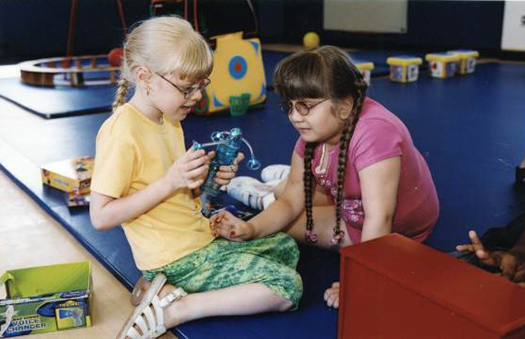The 9 Days of Holiday with the Expanded Core Curriculum: Recreation and Leisure Skills

What Are Recreation and Leisure Skills?
Recreation and leisure skills consist of exactly what you think they do. This is how children who are visually impaired will use their free time. Early on, this may simply include listening to music on headphones or listening to favorite movies on TV. As children get older, it can expand to video games, outdoor activities, and team sports if they are given appropriate exposure. Here are some ways to include your child who is visually impaired:- Watch a holiday movie with video description.
- Have family accessible game nights using games adapted for your child (add braille, tactile markers, large print, etc.)
- Give braille playing cards as a holiday gift, then teach your child a game or two.
- Look into local ski programs that understand and use sighted guide.
- If you have snow, let your child go sledding, and let him ride down the hill by himself.
- Give sports equipment for a gift (beeping ball, basketball with bells, jump rope, etc.)
- Take your child to a local concert, play, or musical.
- Go ice skating, and let your child strike out on his own with cane in hand when he’s ready.
- If he like music, teach him how to run his CD, iPod, etc. on their own.
- Use their new Christmas toys to play “pretend.” This can mean getting on the floor and playing Barbies, pushing a doll in a stroller, or racing cars on the kitchen table. Show your child how those toys were meant to be played!
- Find out what they’d like to try for fun…and then let them do it.
- Taking a vacation can be an infrequent family recreational activity—invite your child to help you plan a trip. You may want to read FamilyConnect’s holiday travel tips for visually impaired children and teens.
- This year, consider giving an experience gift as a holiday present, which may include a certificate for music or sports lessons, membership to an indoor pool or skating rink, or tickets to a play in order to promote your child’s recreational skills. You can read FamilyConnect’s experience gift ideas for children who are blind or visually impaired.